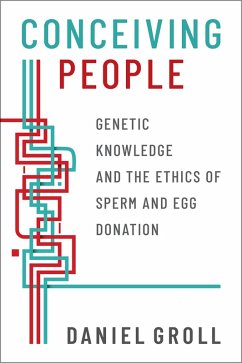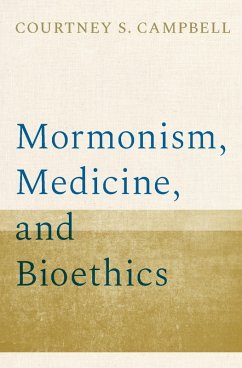
Principles of Animal Research Ethics (eBook, PDF)
Versandkostenfrei!
Sofort per Download lieferbar
19,95 €
inkl. MwSt.
Weitere Ausgaben:

PAYBACK Punkte
10 °P sammeln!
This volume is the first to present a framework of general principles for animal research ethics together with an analysis of the principles' meaning and moral requirements. This new framework of six moral principles constitutes a more suitable set of moral guidelines than any currently available, including the influential framework presented in the Principles of Humane Experimental Technique published in 1959 by zoologist and psychologist William M. S. Russell and microbiologist Rex L. Burch. While other accounts have presented specific directives to guide the use of animals in research, Tom ...
This volume is the first to present a framework of general principles for animal research ethics together with an analysis of the principles' meaning and moral requirements. This new framework of six moral principles constitutes a more suitable set of moral guidelines than any currently available, including the influential framework presented in the Principles of Humane Experimental Technique published in 1959 by zoologist and psychologist William M. S. Russell and microbiologist Rex L. Burch. While other accounts have presented specific directives to guide the use of animals in research, Tom L. Beauchamp and David DeGrazia here offer a set of general moral principles that are adequate to the task of evaluating biomedical and behavioral research involving animals today. Their comprehensive framework addresses ethical requirements pertaining to societal benefit-a critical consideration in justifying the harming of animals in research-and features a thorough program of animal welfare protection. In doing so, their principles bridge the gap between the concerns of the research community and the animal-protection community. The book is distinctive in featuring commentaries on the framework of principles by eminent figures in animal research ethics from an array of relevant disciplines: veterinary medicine, biomedical research, biology, zoology, comparative psychology, primatology, law, and bioethics. The seven commentators-Larry Carbone, Frans de Waal, Rebecca Dresser, Joseph Garner, Brian Hare, Margaret Landi, and Julian Savulescu-scrutinize Beauchamp and DeGrazia's principles in terms of both their theoretical cogency and practical implications, evaluating their relevance to the medical and scientific professions. The range of ethical issues encompassed in Principles of Animal Research Ethics will be useful to professionals in the biomedical and behavioral sciences and will also appeal to individuals and scholars interested in bioethics, animal ethics, and applied ethics generally.
Dieser Download kann aus rechtlichen Gründen nur mit Rechnungsadresse in A, B, BG, CY, CZ, D, DK, EW, E, FIN, F, GR, HR, H, IRL, I, LT, L, LR, M, NL, PL, P, R, S, SLO, SK ausgeliefert werden.













